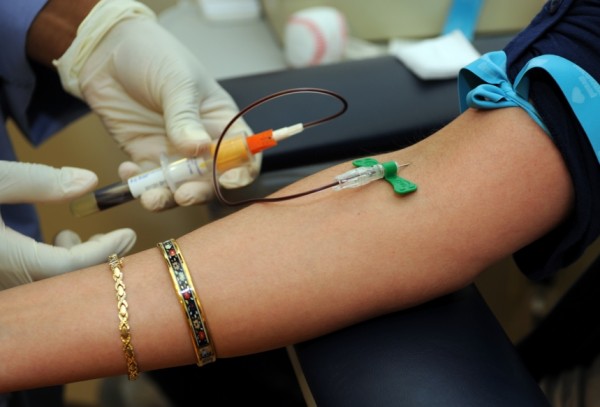
Travis County could be forced to throw out dozens of drunk-driving felony cases because the arresting officers failed to obtain a search warrant before testing the suspect’s blood, reports the Austin American-Statesman.
While officers say they were acting in accordance with the law, a U.S. Supreme Court ruling from April 2013 suggests otherwise. In the case Missouri v. McNeely, the majority of warrantless blood draws in DWI investigations were outlawed.
As a result, Travis County trial court judges were forced to throw out 15 blood tests due to the lack of a search warrant; 17 more, “all involving motorists with two or three prior DWI convictions,” may also be dismissed.
While the Fourth Amendment protects citizens from “unreasonable searches and seizures,” county officials defend the warrantless blood draws based on a state law that provides exceptions under particular circumstances.
Warrantless blood draws no longer tolerated
Passed in 1995 and updated in 2009, the law allows police to obtain blood or breath samples from drunk-driving suspects if they have at least two prior DWI convictions, have a child in the vehicle, or are involved in an accident that results in injuries.
Often times, police officers refused to get a search warrant for blood draws because they felt that taking the time to do so would give the suspect more time to metabolize the alcohol, and thus not give them an accurate reading.
Angie Creasy, an assistant Travis County district attorney, is fighting to protect a string of felony DWI cases derived from warrantless blood draws that could be thrown out based on the McNeely ruling, which is just now beginning to have an effect on drunk-driving cases still pending in Austin.
“Blood is very good evidence for us, so when we lose that, that hurts the case,” Creasy told the Statesman. Speaking in general about DWI cases, she said “It’s not necessarily fatal,” though.
“We have to be able to convince a jury beyond a reasonable doubt, so a lot depends on what other evidence we have — the field sobriety test, the conversation police had with the defendant, the video” of the police stop.
In addition to the DWI cases thrown out in Travis County, appeals courts have also dismissed cases involving warrantless blood draws in Houston, Dallas, San Antonio, Fort Worth and El Paso, according to court records.
Though the law changed after the McNeely ruling, Creasy says the cases currently in jeopardy should be able to be prosecuted without warrants because when the arrests occurred, police were acting in accordance with the law, which is now considered outdated.
Search warrant required in light of past DWIs
“The police were told they had to do something, and the statute doesn’t say anything about (needing) a warrant — honestly, everyone thought that’s the way it was,” said Creasy.
But the ruling from the McNeely case rejected “the argument that time pressure caused by the body’s metabolization of alcohol justified blood draws without a warrant. Instead, the high court said emergency conditions must be examined case by case to determine if a warrant was required.”
This, Creasy says, “was a game changer.”
Austin defense lawyer David Schulman told the Statesman that “police and prosecutors were engaging in wishful thinking when they determined that the Fourth Amendment’s protection against unreasonable search and seizure didn’t apply to blood draws in certain situations.
“Law enforcement has known since 1966 that the U.S. Supreme Court considers blood draws to be an intrusion into the human body that, absent an emergency, requires a search warrant signed by a judge, Schulman said.
“And, with judges available at all hours to review warrants in Austin and most other cities, there are few situations in which the requirement can be lawfully skipped, said Schulman, who represents one of the DWI suspects who has challenged her blood draw as illegal.”
Travis County District Attorney Rosemary Lehmberg contested the decision to throw out 15 warrantless blood draw cases, arguing the blood tests should still be allowed into evidence.
But in 2014, the Texas Court of Criminal Appeals ruled in State v. Villarreal that search warrants still apply, even if a suspect has at least two prior DWI convictions.
Lehmberg was arrested and charged with drunk driving in 2013 after police pulled her over for driving erratically and discovered an open bottle of vodka in the front seat of her car. Because she was uncooperative and aggressive, the district attorney had to be restrained with handcuffs and leg irons.
Sources:

